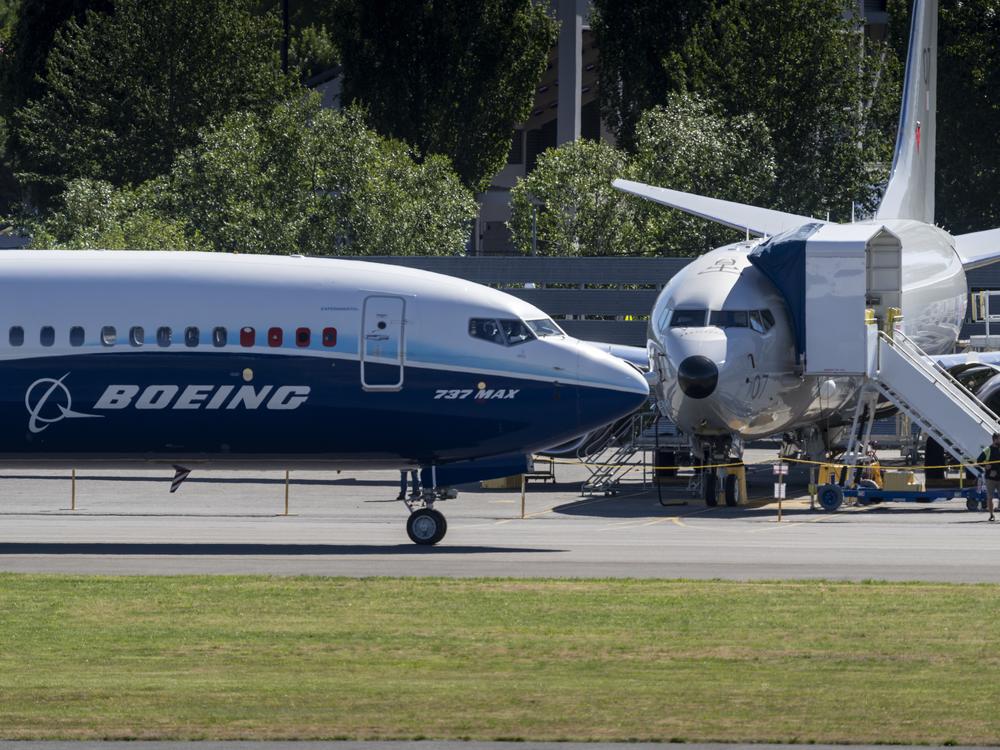Section Branding
Header Content
Boeing posts a $6 billion loss as striking workers vote on a new contract
Primary Content
WASHINGTON — Boeing reported a staggering loss of $6 billion in the third quarter on Wednesday, as its striking machinists voted on whether to accept a new contract offer.
That strike, now in its sixth week, has halted production at Boeing’s factories in the Pacific Northwest. But Boeing’s problems run deeper than that. Even before the strike, the company was grappling with production and quality control issues that limited production of its best-selling 737 line. The company also reported major losses in its defense and space business.
The new CEO, Kelly Ortberg, has announced plans to lay off roughly 10% of its workforce.
"We need to reset priorities and create a leaner, more focused organization," Ortberg said in prepared remarks released by the company on Wednesday. “Boeing is an airplane company and at the right time in the future we need to develop a new airplane. But we have a lot of work to do before then."
They were Ortberg's first public remarks since he started as CEO in August.
Ortberg is taking the reins at a crucial moment for Boeing. The head of Emirates, a major Boeing customer, said this month that the plane maker could be headed for a credit downgrade, with bankruptcy “looming on the horizon.”
Boeing quickly announced it intends to raise billions of dollars to replenish its cash flow — including up to $25 billion by selling stock and other securities, and another $10 billion through a new line of credit.
Other observers say Boeing’s problems aren’t that bad. At least, not yet.
“I don't think that bankruptcy's inevitable,” said Kevin Michaels, managing director at AeroDynamic Advisory, an industry consulting firm. “It is a possibility. It's a higher possibility today than it was six months ago or a year ago. But I don't think it's inevitable.”
Michaels worked closely with Boeing’s CEO in the 1990s, when they were both at the firm Rockwell Collins. And Michaels believes Ortberg’s strategy of shrinking the company is fundamentally sound.
“Boeing is a bloated mess,” Michaels said. “They're very top heavy. And that slows down their decision-making.”
In the long run, Michaels thinks Boeing can still turn things around, especially if it’s able to sell off assets that are underperforming.
For now, the focus is on Boeing’s latest proposal to its striking machinists. The union’s 33,000 members overwhelmingly rejected the company’s first contract offer more than five weeks ago.
Now there’s a better offer on the table. And this time, the vote could be much closer.
“Our members have been able to get Boeing to move a lot,” said Jon Holden, the president of the International Association of Machinists and Aerospace Workers District 751.
The machinists union credits Acting U.S. Secretary of Labor Julie Su with helping to restart stalled negotiations.
Boeing is now offering a 35% wage hike — a significant increase from the initial offer of 25%, though still short of the 40% raise the union wanted. The company would also increase its contributions to employees 401k retirement funds.
But there’s one key union demand where Boeing has not budged: the pension plan.
“When we lost our pensions, I cried,” said Kat Kinckiner, a union steward at the plant in Renton, Wash. where Boeing assembles the 737. “This was my future. And to see something just taken like that was just devastating.”
At the rally in Seattle last week, Kinckiner and other union members made it very clear they want to reinstate the pension plan they lost a decade ago.
“I remember then, all of us said, this next contract, we’re not taking this,” she said. “It’s not gonna happen anymore. Not to us. Not like that.”
IAM 751 president Jon Holden says he understands why some of his members are still angry, and why some are still fighting to get the pension plan back.
“Those wounds don't heal easy,” he said. “But now it's ten years later, and it's not easy to get something like that back.”
The union’s leadership is not making a recommendation as to how members should vote on this offer. That’s a notable difference from the previous vote in September, when the union did recommend acceptance — only to be sharply criticized by some members.
“We do believe it's our responsibility to get this in front of the members so that they can make that decision,” Holden said. “I hope they'll consider this, but it's up to them.”



